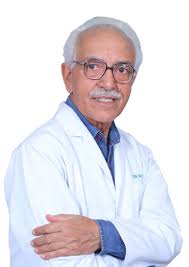What Is Immunotherapy?
Immunotherapy is a type of biological cancer treatment that uses the body’s own immune system to identify and destroy cancer cells. Unlike chemotherapy, which directly kills cells, immunotherapy activates immune responses against tumors, offering a more natural and targeted method of fighting cancer.
There are different forms of immunotherapy, such as:
· Checkpoint inhibitors (e.g., Nivolumab, Pembrolizumab)
· CAR T-cell therapy
· Monoclonal antibodies
· Cytokines and cancer vaccines
Immunotherapy is now widely used to treat several cancers, including lung cancer, melanoma, kidney cancer, head and neck cancers, bladder cancer, and certain blood cancers.
Who Needs Immunotherapy?
Immunotherapy is recommended for patients who:
· Have cancers that are not responding well to chemotherapy or radiation
· Are diagnosed with advanced-stage or metastatic cancer
· Show specific genetic or molecular markers like PD-L1 or MSI-high
· Are undergoing personalized cancer treatment plans
· Prefer targeted treatment with fewer side effects
It is commonly used in the treatment of:
· Non-Small Cell Lung Cancer (NSCLC)
· Melanoma (skin cancer)
· Renal Cell Carcinoma (kidney cancer)
· Hodgkin’s Lymphoma
· Bladder Cancer
· Triple-Negative Breast Cancer
· Head and Neck Cancers
Your oncologist will determine eligibility based on tumor type, mutation status, and overall health.
What Are the Types of Immunotherapy?
There are several forms of immunotherapy, each with a different mechanism:
1. Checkpoint Inhibitors
These drugs block proteins like PD-1, PD-L1, and CTLA-4 that cancer cells use to hide from immune attacks. Examples include:
· Nivolumab (Opdivo)
· Pembrolizumab (Keytruda)
· Atezolizumab (Tecentriq)
2. CAR T-cell Therapy
Chimeric Antigen Receptor (CAR) T-cell therapy involves modifying the patient’s T-cells in a lab to target specific cancer cells. Effective in blood cancers like:
· B-cell ALL
· Lymphoma
· Multiple Myeloma
3. Monoclonal Antibodies
Lab-made immune proteins that bind to cancer cells, marking them for destruction. Examples:
· Rituximab
· Trastuzumab
· Bevacizumab
4. Cytokines
Substances like interleukin-2 (IL-2) and interferons are used to boost immune activity.
5. Cancer Vaccines
Used for preventing or treating cancer by stimulating immune responses. Example: HPV vaccine for cervical cancer.
6. Oncolytic Virus Therapy
Engineered viruses infect and kill cancer cells while activating immune responses.
What Is the Detailed Immunotherapy Protocol in India?
India follows a globally accepted, evidence-based immunotherapy treatment protocol customized to each patient’s condition. Here's the step-by-step process:
1. Pre-Treatment Evaluation
· Online or in-person consultation with a medical oncologist via Healzone
· Review of medical history, biopsy results, and genetic/molecular reports
· Advanced diagnostics: PET-CT, Tumor Mutation Burden (TMB), PD-L1 testing, CBC, LFT, KFT
2. Personalized Treatment Planning
· Tumor board evaluates eligibility for immunotherapy
· Selection of immunotherapy type (e.g., checkpoint inhibitors, CAR T-cell)
· Cost estimate and scheduling of cycles
3. Administration of Immunotherapy
· Delivered as IV infusion in a hospital day-care setting
· Each session lasts 30 minutes to 2 hours
· Administered every 2–6 weeks depending on the drug protocol
· Monitoring for allergic reactions or immune side effects
4. Post-Treatment Monitoring
· Regular blood tests and scans to assess response
· Supportive medications to manage fatigue, inflammation, or rash
· Monthly follow-ups with the oncologist (can be online for international patients)
5. Duration
· Duration varies by cancer and response
· Typically given for 6 months to 2 years, depending on drug and condition
Healzone ensures all international patients get personalized care, follow-up, and accommodation support throughout their treatment journey.
What Devices and Drugs Are Used in Immunotherapy in India?
India uses globally approved immunotherapy drugs and infusion equipment, ensuring safe and high-standard treatment. Some commonly used elements include:
Devices:
· IV Infusion Pumps
· Vital Sign Monitors
· Sterile Infusion Suites
· Emergency Anaphylaxis Kits
Drugs Used:
· Nivolumab (Opdivo) – Lung, kidney, and melanoma
· Pembrolizumab (Keytruda) – Lung, bladder, head & neck
· Atezolizumab (Tecentriq) – Lung, breast, liver
· Durvalumab (Imfinzi) – Lung cancer
· CAR T-cell therapies (experimental and approved for certain leukemias/lymphomas)
· Monoclonal antibodies – Rituximab, Bevacizumab, Trastuzumab, Cetuximab
These drugs are imported and FDA/EMA approved, and Indian hospitals ensure their cold chain integrity and proper administration protocols.
What Are the Benefits of Immunotherapy Over Traditional Treatments?
Immunotherapy offers multiple advantages over conventional cancer treatments like chemotherapy and radiation:
|
Feature |
Immunotherapy |
Chemotherapy/Radiation |
|
Targeted Action |
Boosts immune system to attack cancer |
Affects both cancerous and healthy cells |
|
Side Effects |
Generally fewer and milder |
Often severe (hair loss, nausea, fatigue) |
|
Suitability |
Works for advanced/metastatic cases |
Limited efficacy in late-stage cancer |
|
Long-term Effect |
May provide durable remission |
Often needs repeated cycles |
|
Customization |
Personalized to patient’s immune profile |
Standard protocol for all |
Immunotherapy provides long-term control in many cancers and is a game-changer for patients with immune-sensitive tumors.
Why Choose India for Immunotherapy?
India has become a global destination for affordable and quality cancer care due to several factors:
· Globally trained oncologists with experience in the USA, UK, and Japan
· Availability of FDA and EMA-approved immunotherapy drugs
· Top-tier hospitals with advanced cancer centers (NABH/JCI accredited)
· Cost of immunotherapy in India is 60–80% lower than Western countries
· Minimal waiting time and complete care under one roof
· Growing access to CAR T-cell therapy and personalized treatments
India’s oncology ecosystem matches international standards while keeping the cost accessible for global patients.
Why Choose Healzone for Immunotherapy in India?
Healzone is your trusted healthcare companion for international medical travel. Here's why patients from over 40 countries choose Healzone:
· Direct tie-ups with top hospitals and cancer centers in India
· End-to-end coordination: consultation, visa invitation, travel, stay
· Access to international oncology experts and tumor boards
· Transparent, pre-estimated cost breakdown – no hidden charges
· Personalized treatment plan, second opinions, and interpreter services
· Post-treatment virtual support even after patients return home
Healzone ensures that your cancer treatment in India is safe, affordable, and stress-free.
What Is the Cost of Immunotherapy in India with Breakup?
Immunotherapy in India is much more affordable than in Western nations. Below is a detailed cost estimate per cycle:
|
Component |
Estimated Cost (USD) |
|
Initial Consultation & Tumor Board Review |
$50 – $100 |
|
Diagnostic Tests (PET-CT, Biopsy, PD-L1, CBC, TMB) |
$500 – $1,200 |
|
Immunotherapy Drug (e.g., Keytruda, Opdivo) |
$2,000 – $6,000 |
|
Hospital Day-care Charges |
$200 – $400 |
|
Oncologist Fee & Infusion Charges |
$300 – $600 |
|
Monitoring & Supportive Medications |
$100 – $300 |
|
Follow-up Consultation (Virtual) |
Included |
Total Cost per Cycle in India: $3,000 – $8,000
Note: The number of cycles depends on the cancer type and response. Patients usually require 4 to 12 cycles, spaced 2–3 weeks apart.
What Is the Procedure for International Patients to Start Immunotherapy in India?
Healzone makes the process simple and streamlined:
1. Submit medical reports online
2. Virtual consultation arranged with leading oncologists
3. Cost estimate and treatment plan shared within 24–48 hours
4. Medical visa support and invitation letter issued
5. Travel and accommodation assistance provided
6. Patient arrives in India → treatment begins within 2–3 days
7. Ongoing support throughout treatment and even post-discharge
What Is the Recovery Time and Duration of Immunotherapy?
· Recovery per cycle: No hospitalization required. Most patients can resume daily activities within 24 hours.
· Cycle frequency: Typically every 2 to 3 weeks
· Total duration: 6 months to 2 years
· Follow-up tests: PET-CT or tumor markers every 2–3 months
· Post-treatment care: Diet, hydration, and immune monitoring
Recovery is smoother than chemotherapy with fewer side effects and better quality of life.
Is Immunotherapy Safe? What Are the Possible Side Effects?
Yes, immunotherapy is generally safe, especially when administered under expert supervision. However, like all cancer treatments, it may cause side effects:
Common Side Effects:
· Fatigue
· Skin rash or itchiness
· Mild fever
· Diarrhea
Less Common but Serious Effects (Rare):
· Autoimmune reactions (thyroiditis, hepatitis, pneumonitis)
· Infusion-related allergic reactions
These risks are well-managed in Indian hospitals with pre-infusion medications, monitoring protocols, and emergency care support.
What Is the Success Rate and Long-Term Outcome of Immunotherapy in India?
· Overall success rate: 60–80% for responsive cancers (e.g., lung, melanoma, Hodgkin lymphoma)
· Partial or complete remission observed in many patients
· Durable responses lasting years in eligible cases
· India’s long-term outcomes are comparable to global benchmarks
· Success depends on PD-L1 levels, genetic markers, and stage
Early consultation and proper molecular testing increase success chances.







